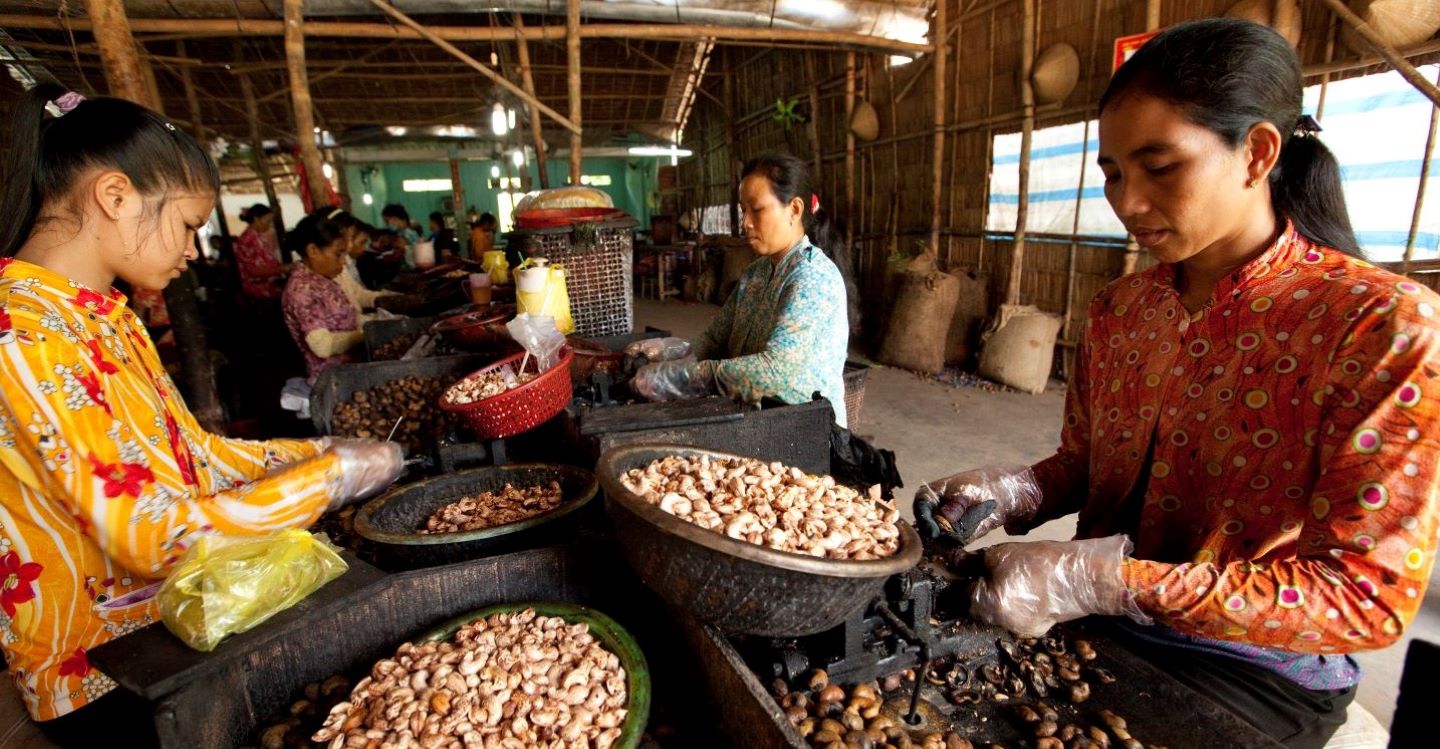New partnership to promote decent work across food systems
IFAD Asset Request Portlet
Asset Publisher
New partnership to promote decent work across food systems
The new alliance between ILO, IFAD and CARE will promote decent work and productive employment, with the aim of tackling poverty and inequality in the sector while also promoting sustainable business.
20 July 2023
Geneva/Rome 20 July 2023 - A new multi-stakeholder partnership to advance labour and human rights, decent jobs and fair and adequate incomes and wages within the agri-food sector has been formed by the International Labour Organization (ILO), the International Fund for Agricultural Development (IFAD), and CARE International
The Decent Work for Equitable Food Systems Coalition will promote decent and productive employment across food systems. Its priorities are based on the four pillars of the ILO’s Decent Work Agenda: rights at work; full and productive employment; social protection; and social dialogue.
The Coalition will build partnerships with Member States, employers’ and workers’ organizations, civil society, business, international organizations, employment and labour institutions, and food systems communities. It provides a space to share and leverage experience on strategies needed to improve the working conditions and livelihoods of agri-food workers and promote sustainable enterprises in the sector.
Agri-food jobs are among most hazardous, unprotected and poorly paid. Two-thirds of those workers classified as ‘extremely poor’ are in agriculture. In some countries, agricultural workers are excluded from general labour legislation. They may therefore lack the rights and legal protections available to workers in other sectors.
“Recent crises have exposed the frailty of our food systems, highlighting the serious employment and labour challenges facing agri-food workers and businesses. Building resilient and equitable food systems that produce enough nutritious food for the world’s growing population requires an approach that guarantees the rights of agri-food workers, addresses decent work deficits and promotes sustainable growth of the agri-food sector. The ILO has a wide range of tested tools and methods to effectively advance such approaches,” said Alette van Leur, Director of the ILO’s Sectoral Policies Department.
“Tackling inequality must be at the heart of sustainable development. IFAD’s vision of inclusive and sustainable rural transformation is one in which extreme poverty is eliminated and every rural family works and lives in dignity. The international community, and initiatives such as the Coalition have an important role to play in achieving this,” said Tom Anyonge, IFAD Lead Technical Specialist, Youth, Rural Development and Institutions.
“We cannot address extreme poverty worldwide until we address economic justice and equitable livelihoods for every farmer, fisherfolk and worker in food systems. At CARE we know this reality far too well. For over 75 years, CARE has led the way to a better life for the world’s most vulnerable people. We welcome others to join us in this daunting yet necessary challenge for justice,” said Christine Campeau, Advocacy Director, CARE International.
The three organisations will build on their collective mandates to accelerate a substantial increase in impactful actions by stakeholders across food systems. Together, the coalition will deliver concrete progress on achieving a fairer and more equitable world of work for the 4.5 billion people dependant on food systems for their livelihoods.
Media contacts:
IFAD Press Release PR-72-2023
IFAD is an international financial institution and a United Nations specialized agency. Based in Rome – the United Nations food and agriculture hub – IFAD invests in rural people, empowering them to reduce poverty, increase food security, improve nutrition and strengthen resilience. Since 1978, we have provided more than US$24 billion in grants and low-interest loans to fund projects in developing countries.
A wide range of photographs of IFAD’s work in rural communities are available for download from its Image Bank.